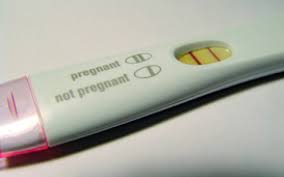Risk Factors of an Ectopic Pregnancy
An ectopic
pregnancy can happen to any woman, even if she has no known risk factors.
Certain women are at a higher risk than others, though.
One common
risk factor is having had any condition or surgery that affected the fallopian
tubes, such as:
- Surgery on your fallopian tubes to correct a problem or to reverse a tubal ligation (surgical sterilization). (Your risk may also be higher, though to a much smaller degree, if you've had other pelvic or abdominal surgery.) In the rare case that a woman becomes pregnant after a tubal ligation, the chance that the pregnancy is ectopic is 25 to 50 percent.
- A previous ectopic pregnancy. After one ectopic pregnancy, the chance of having another one is about 1 in 10. If you've had two or more ectopic pregnancies, the chance that you'll have another one is at least 1 in 4.
- An infection in your upper reproductive tract (this is called pelvic inflammatory disease, or PID). PID is often caused by untreated sexually transmitted infections (STIs), such as gonorrhea or chlamydia. It sometimes has no symptoms, so having had either of these STIs also increases your risk for an ectopic pregnancy, even if you don't think you've had PID.
- (Having had multiple sexual partners also increases your risk, because this makes it more likely that you've had an STI and PID.)
- Fertility issues. Infertility is often caused by damaged tubes, and if you get pregnant while being treated for infertility, there's a higher than average chance that the pregnancy will be ectopic.
- A mother who took the drug DES while pregnant with you. This may have caused problems, including abnormalities of your fallopian tubes and uterus, which increase your risk for having an ectopic pregnancy. (Note: DES was taken off the market in the United States in 1971 but remained available in some other countries. If you're in your late thirties or older, or your mother lived in another country when she carried you, ask her whether or not she took DES.)
- A gynecological condition called endometriosis may cause scarring that affects your fallopian tubes, increasing your risk of having an ectopic pregnancy.
Women who are
35 years of age or older when they become pregnant are also at an increased
risk of ectopic pregnancy. This may be related to a change in how well the
tubes work as a woman ages. Or it may be that PID might do increased damage
over time in women with infections or women may have repeated episodes of PID.
In the rare
instance that you become pregnant with an intrauterine device (IUD) in place, the chance that
it's an ectopic pregnancy is higher than average. An IUD doesn't cause
an ectopic pregnancy – it's just better at preventing an egg from implanting in
your uterus than outside it. Of course, while using an IUD, your overall risk
of ectopic pregnancy is much lower than that of the general population. And
having used an IUD in the past won't raise your risk for ectopic pregnancy.
You may also
be at increased risk of ectopic pregnancy if smoke. One theory is that smoking may impair the
normal functioning of your tubes.
Some studies
suggest that if you happen to become pregnant while taking progestin-only hormonal contraceptives the chance that it's ectopic is
somewhat increased.
"" Culled from: http://www.babycenter.com/0_ectopic-pregnancy_229.bc?page=2




Comments
Post a Comment